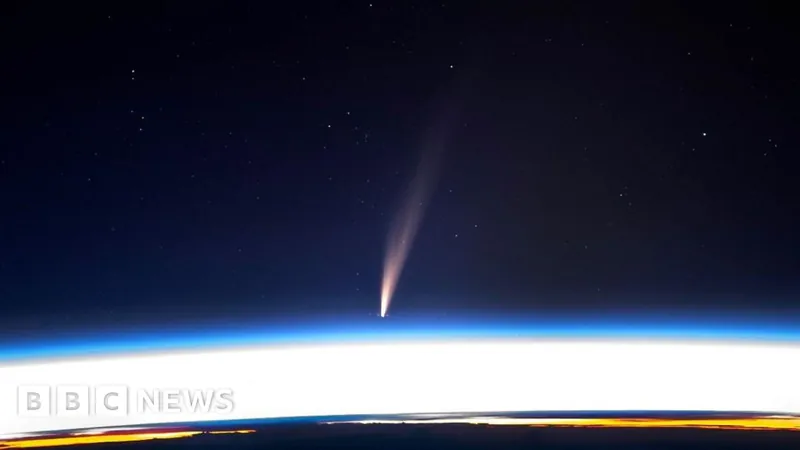
Don’t Miss This: A Once-in-a-Generation Comet Set to Light Up the Skies!
2025-01-13
Author: Jessica Wong
Overview of the Cosmic Event
A remarkable cosmic event is about to unfold as a bright comet is expected to be visible from Earth for the first time in an astonishing 160,000 years! The exciting news comes from NASA, which emphasizes that while predicting a comet's brightness can be notoriously tricky, Comet C/2024 G3 (Atlas) may shine brightly enough to be seen with the naked eye in the coming days.
Perihelion and Viewing Opportunities
On Monday, this incredible comet reached perihelion, the closest point to the Sun, which significantly affects its brightness. Experts suggest that viewing opportunities could arise as soon as Monday night.
Best Viewing Locations
Though specific locations for optimal viewing remain uncertain, researchers believe that the best chances to see the comet will be from the southern hemisphere. This celestial phenomenon is estimated to shine as brightly as Venus—an astronomical spectacle not to be missed!
Discovery and Classification
Discovered last year by NASA's Asteroid Terrestrial-impact Last Alert System, Comet C/2024 G3 (Atlas) is classified as a "sun-skirting" comet, with its trajectory taking it approximately 8.3 million miles from the Sun, according to Dr. Shyam Balaji, a leading researcher in astroparticle physics and cosmology at King’s College London.
Expert Insights
"Current orbital calculations suggest the best viewing conditions will occur in the days surrounding perihelion, depending heavily on the local weather and the comet's behavior," Dr. Balaji explained. He urged skywatchers in the southern hemisphere to direct their gaze toward the eastern horizon before sunrise. After perihelion, viewers should look west after sunset for the best visibility.
Caution and Challenges for Northern Hemisphere
However, he cautioned that predicting a comet's brightness remains highly uncertain. Many comets have surprised observers, with some ending up dimmer than initially anticipated. For those residing in the northern hemisphere, including the UK, catching a glimpse of this comet could prove more challenging due to its position in relation to the Sun.
Conclusion and Recommendations
As excitement builds for this extraordinary celestial event, be sure to keep an eye on the heavens! For the latest weather updates and to check if the skies are clear in your area, don't forget to check the BBC Weather online. Mark your calendars and prepare for a night under the stars—this is an astronomical event you definitely won't want to miss!



 Brasil (PT)
Brasil (PT)
 Canada (EN)
Canada (EN)
 Chile (ES)
Chile (ES)
 Česko (CS)
Česko (CS)
 대한민국 (KO)
대한민국 (KO)
 España (ES)
España (ES)
 France (FR)
France (FR)
 Hong Kong (EN)
Hong Kong (EN)
 Italia (IT)
Italia (IT)
 日本 (JA)
日本 (JA)
 Magyarország (HU)
Magyarország (HU)
 Norge (NO)
Norge (NO)
 Polska (PL)
Polska (PL)
 Schweiz (DE)
Schweiz (DE)
 Singapore (EN)
Singapore (EN)
 Sverige (SV)
Sverige (SV)
 Suomi (FI)
Suomi (FI)
 Türkiye (TR)
Türkiye (TR)
 الإمارات العربية المتحدة (AR)
الإمارات العربية المتحدة (AR)